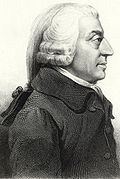Freedom of religion

Freedom of religion, also known as freedom of worship, is the human right and civil liberty to be able to practice a religion without fear of being persecuted for it. It usually involes tolerating religions that are not the majority religion and usually comes alongside a separation of church and state, although not always. According to the United Nations, freedom of religion is part of international law.
By country
United States
In the United States, freedom of religion is part of the First Amendment to the United States Constitution, which states:
Congress shall make no law respecting an establishment of religion, or prohibiting the free exercise thereof; or abridging the freedom of speech, or of the press; or the right of the people peaceably to assemble, and to petition the Government for a redress of grievances.
Freedom Of Religion Media
The French Declaration of the Rights of Man and of the Citizen (1789) guarantees freedom of religion, as long as religious activities do not infringe on public order in ways detrimental to society.
Minerva as a symbol of enlightened wisdom protects the believers of all religions (Daniel Chodowiecki, 1791)
Muslims praying at a Jama Masjid in India, a majority-Hindu country
Nineteenth-century allegorical statue on the Congress Column in Brussels depicting religious freedom
The cross of the war memorial and a menorah coexist in Oxford, Oxfordshire, England
Original act of the Warsaw Confederation 1573. The beginning of religious freedom in the Polish–Lithuanian Commonwealth
Pilgrims Going to Church, a 1867 depiction of Puritans in the New England colonies, by George Henry Boughton.
A 1957 U.S. postage stamp commemorating religious freedom and the 1657 Flushing Remonstrance which had lifted governor Peter Stuyvesant's ban on Quaker worship in New Netherland.
Religious Liberty, a statue by Moses Jacob Ezekiel commissioned for the 1876 Centennial Exposition and dedicated "to the people of the United States".
Adam Smith argued in favour of freedom of religion.









